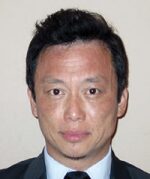Sustainable growth in oil and gas production must stem from a combination of new discoveries and optimized recovery from maturing fields. Therefore, development of mature oil fields has been, and will increasingly be, an attractive subject. Consequently, there is a large number of published studies describing the methodology of mature-field-development practices. However, it is also evident that optimizing the production of mature fields presents great technological challenges for the operators, who must manage production decline over the short term while increasing recovery factors over the long term. There are opportunities for quick wins, but, for long-term growth, a coherent strategy that integrates elements of technology, people, and process must be established.
A significant amount of information is available that covers almost all aspects of managing mature fields. It is critical to have access to the relevant information and to use the right tools to improve decision cycle time. This allows the operators to correct course in a timely manner and to avoid implementing changes in a compartmentalized fashion. It is straightforward to establish processes and follow best practices, but having people with multidisciplinary expertise is the glue that holds all the pieces together. Many in the industry have stressed the importance of properly developing experience and capacity for innovation. However, promoting the culture of innovation requires patience, which is challenging for public companies that are under quarterly pressure.
It is exciting to see that there is no shortage of technological advances, but it is safe to say that there is still plenty of room for key enablers to continue to evolve and to synergize with each other. For instance, chemistry, as a basic science, could play a bigger role in the overall scheme and perhaps, in certain areas, should take the leading role. Nature has designed countless examples of well-choreographed chemical reactions that support the complexity of life. It is conceivable that such intelligent chemistry can also be developed to broaden the role of chemistry in terms of managing mature fields. I hope to see more and more chemistry-related publications in the coming years.
The decline of a field’s production curve is inevitable; good preparation helps to control the process. I remember reading this statement from one of the majors: “Preparations for field maturity must start with first oil.” In parallel, one must also keep in mind that social responsibility, especially the environmental aspect, should be one of the key considerations while establishing the development strategy.
Again, this is where chemistry can bring significant value. For instance, precise fracturing technology that uses less proppant is a good example of new technology that exhibits uncompromised performance that is one step in the right direction. I hope you enjoy reading the selected papers for this month’s feature.
This Month's Technical Papers
Channel Fracturing Applied in Mature Wells in Western Siberia
Mature-Field Subsurface Integrity: Holistic Diagnostic Approach in Malaysia
Optimum Development in Mature Fields: Sanga-Sanga Assets, Indonesia
Recommended Additional Reading
OTC 24092 A Mature Southern North Sea Asset Considers Conversion to Wet-Gas Operation, Which Requires the Development of Compatible and Novel Chemistries for Flow Assurance and Asset Integrity by J.F.L. Garming, Nederlandse Aardolie Maatschappij, et al.
SPE 166300 Reducing Brownfield Development Costs Through Improved Drilling Practice and Enhanced Understanding of Wellbore Instability in Weak Formations by N. Stevenson, Statoil, et al.
SPE 160429 Innovative Solution Successfully Recompletes Problematic Well in Malaysia by Chris Elliott, Petronas Carigali, et al.

Jesse Lee, SPE, is chemistry technology manager at Schlumberger. He holds a PhD degree in chemistry from Yale University and conducted his post-doctoral research at the Massachusetts Institute of Technology. Lee joined Schlumberger in 1997 in Tulsa as a development engineer, focused on the development of polymer-based fracturing fluids. During 2000–10, he managed new-product development at Schlumberger product centers in Sugar Land, Texas, and Clamart, France. At Schlumberger, Lee is responsible for developing technical collaborations and managing relationships with external chemical companies. He is a member of the JPT Editorial Committee.
